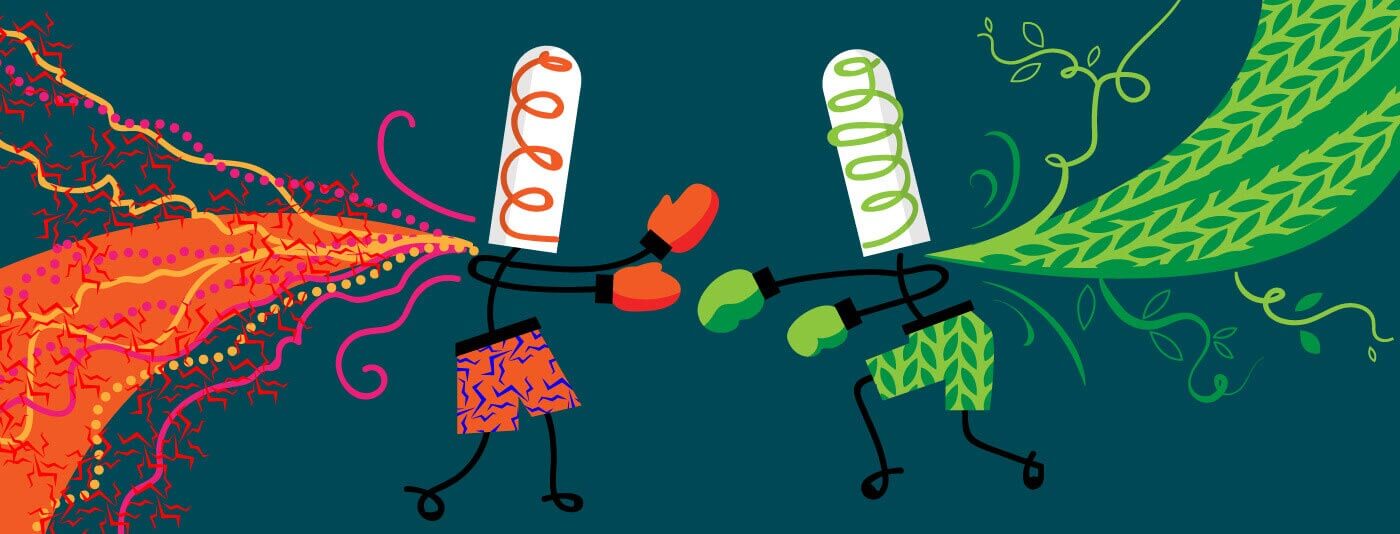Organic Tampons: Do they Really Matter?
Organic. Local. Seasonal. Non-GMO. These are all the labels and standards I've come to follow with food over the years. It's been a great way to clean up my diet and reduce the toxic load on my body.
But, I have to admit, the idea of organic tampons seemed excessive. Do we really need organic tampons? What's the difference between them and my trusty Tampax I've used for decades? I decided to check it out, and here's what I discovered.
Toxins in our tampons?
I first found it astonishing the scale the potential impact. According to the Campaign for Safe Cosmetics, a woman who uses tampons monthly will purchase an average of 11,000 tampons in her lifetime.1 That’s a lot of tampons! And let’s be honest, us “endo” women likely crush that number. It’s not something we’re necessarily touting, but it is reality.
The study continued in stating, “Unfortunately, tampons may contain traces of dioxin from bleach; pesticide residues from conventional, non-organic cotton; and mystery “fragrance” ingredients”.1 Dioxin is an endocrine disrupter, meaning it could affect the health of your hormones.
Now here’s the eye-opener... the vagina is a thin mucus membrane. What’s the significance of that? It’s going to absorb toxins and chemicals more easily that our skin will absorb them. So, it shouldn’t come as a surprise that the National Institute for Health shared a study that endometriosis has emerged as a disease potentially related to environmental exposures.2
What makes organic tampons different?
This certainly got me thinking. Now, of course, there’s a lot that science is still clarifying, but I also don’t want to be the guinea pig for an experiment. Personally, it’s a strong debate on whether to go organic or not. So, what, exactly, does “organic” mean then?
Organic tampons are 100% organic cotton, and have not been exposed to pesticides, dyes, fragrances, or toxins. That sounds pretty important for something that’s going in my body. Yet, still, I feel the question needs special consideration in the context of endometriosis.
Again, chances are you're using more tampons than the average person, so you may have an increased exposure to the chemicals. But, on that note, you're using more tampons so along with the increased price of the organic version, you need more quantity than the average person so the cost may be prohibitive. They can be nearly double the cost. You can, of course, shop around for the best value and even catch a good sale.
A personal choice
Just as with deciding upon food, though, "going organic" is a personal choice you get to make. I personally have not purchased organic tampons, however, after looking into, it I'm going to give one a try next time I shop. I can’t say I’m fully committing moving forward, but it’s worth one box to test them out.
So, I'm curious to know, do you use organic tampons? What's your take... hype or health-essential?

Join the conversation